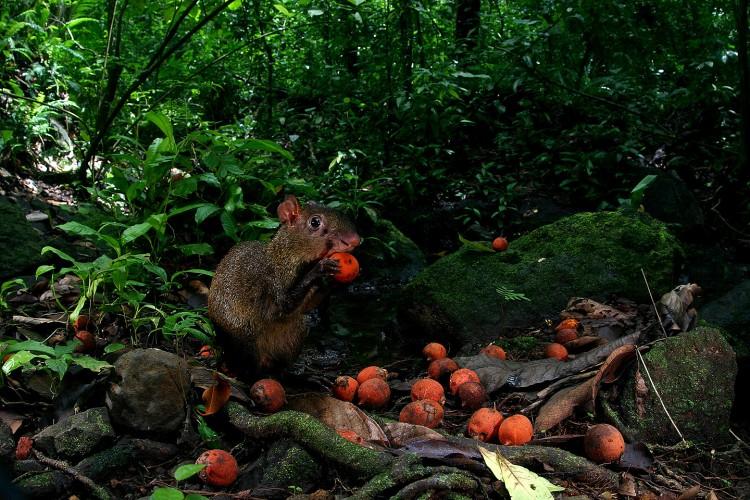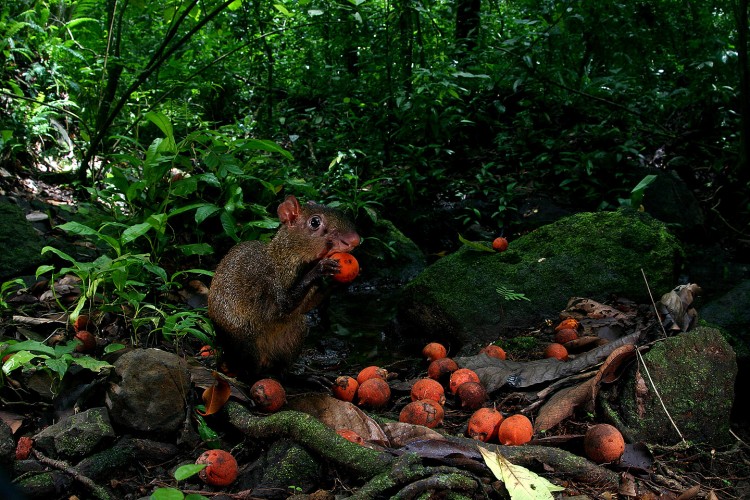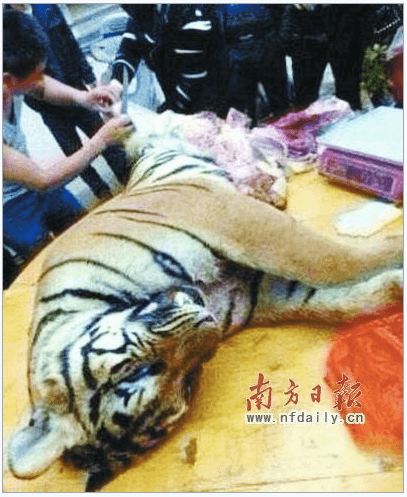The seed-dispersing role of a large mammal family that died out in the Pleistocene may have been adopted by rodents and thus prevented the black palm tree from going extinct.
Elephant-like animals known as gomphotheres were thought to have eaten large forest seeds and defecated them whole, but went extinct more than 10,000 years ago.
A team of researchers working at the Smithsonian Tropical Research Institute in Panama investigated the fates of over 400 such seeds by fitting them with miniature radio transmitters.
They found that 85 percent of the seeds were cached by agoutis, which inhabit tropical lowlands in Central and South America, and look like large guinea pigs. They are herbivorous and hoard seeds, often burying them multiple times.
“Agoutis moved seeds at a scale that none of us had ever imagined,” said study co-author Patrick Jansen from Holland’s Wageningen University in a press release.
The team observed that one seed was moved 36 times, over a distance of 749 meters. It ended up 280 meters from its original position and was eaten by an agouti 209 days after it was first moved.
Using remote cameras, the scientists learned that the seeds were mostly moved due to agoutis stealing them from each another. They found that 35 percent of the seeds ended up over 100 meters from their starting points.
“Previously, researchers had observed seeds being moved and buried up to five times, but in this system it seems that this recaching behavior was on steroids,” said study co-author Ben Hirsch at Ohio State University in the release.
“By radio-tagging the seeds, we were able to track them as they were moved by agoutis, to find out if they were taken up into trees by squirrels, and to discover seeds inside spiny rat burrows.”
The paper was published online in the Proceedings of the National Academy of Sciences on July 16.
The Epoch Times publishes in 35 countries and in 19 languages. Subscribe to our e-newsletter.





